Description
What is Sencha?
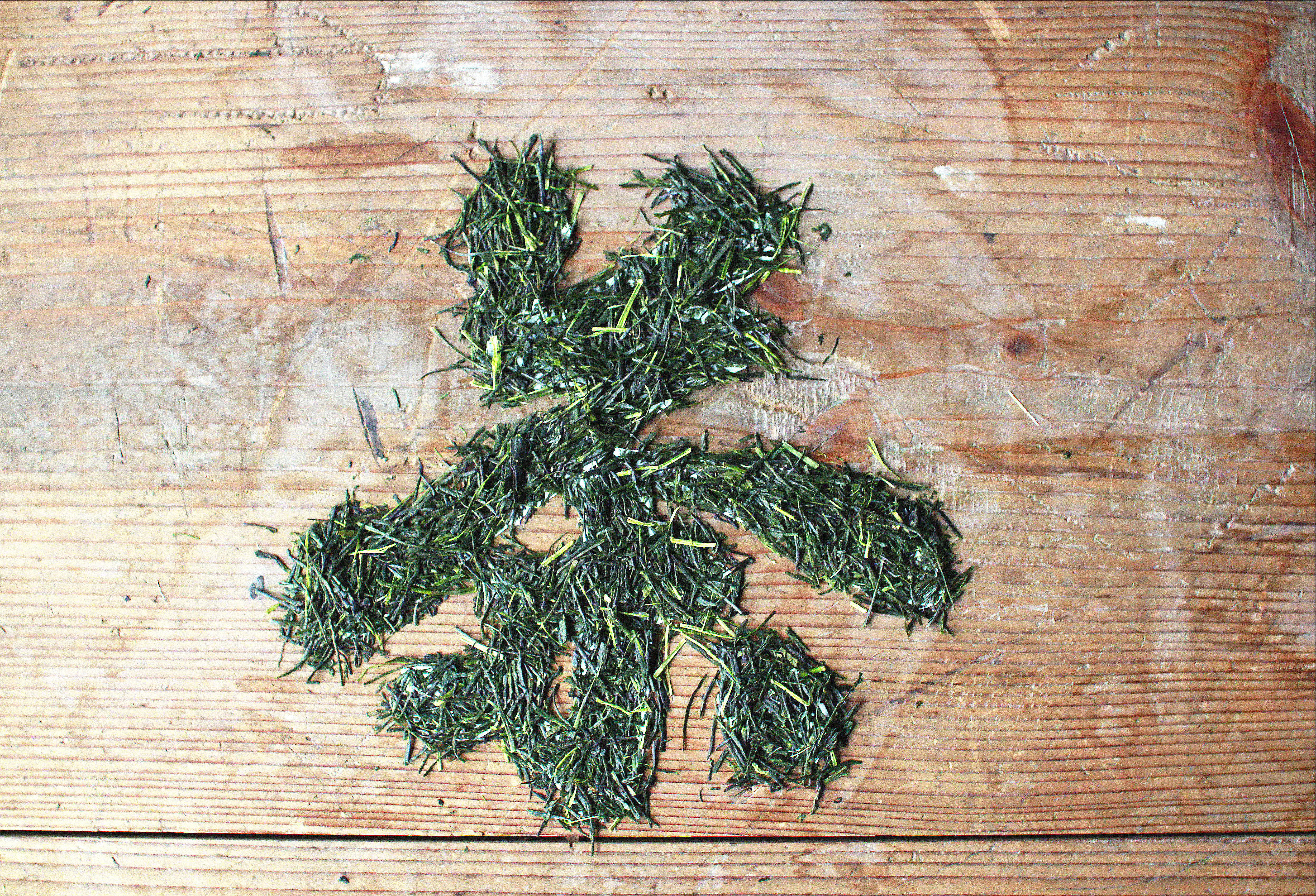 Sencha (煎茶), which means `brewing tea´, is the most popular type of tea in Japan and is unique in its distinctive emerald green colour. In fact, 80% of all green tea produced in Japan is considered Sencha. After being picked, the Sencha leaves are immediately steamed for about 40 to 50 seconds to stop them from oxidising. This step is followed by several rolling processes (rough rolling, strong rolling, middle rolling, and finally fine rolling) carried out by man-operated machines. These imitate the hand rolling process from earlier times and transform the leaves into evenly formed shapes.
Sencha (煎茶), which means `brewing tea´, is the most popular type of tea in Japan and is unique in its distinctive emerald green colour. In fact, 80% of all green tea produced in Japan is considered Sencha. After being picked, the Sencha leaves are immediately steamed for about 40 to 50 seconds to stop them from oxidising. This step is followed by several rolling processes (rough rolling, strong rolling, middle rolling, and finally fine rolling) carried out by man-operated machines. These imitate the hand rolling process from earlier times and transform the leaves into evenly formed shapes.
Traditionally, the cultivation of Sencha is divided into three harvesting periods. The first leaves that are picked from April to May are the youngest, most tender ones and therefore provide the best quality Sencha. In June and July is the summer harvest, and the last harvest of the year is carried out in September. Each harvest gives Sencha a unique characteristic.
Farmer Profile
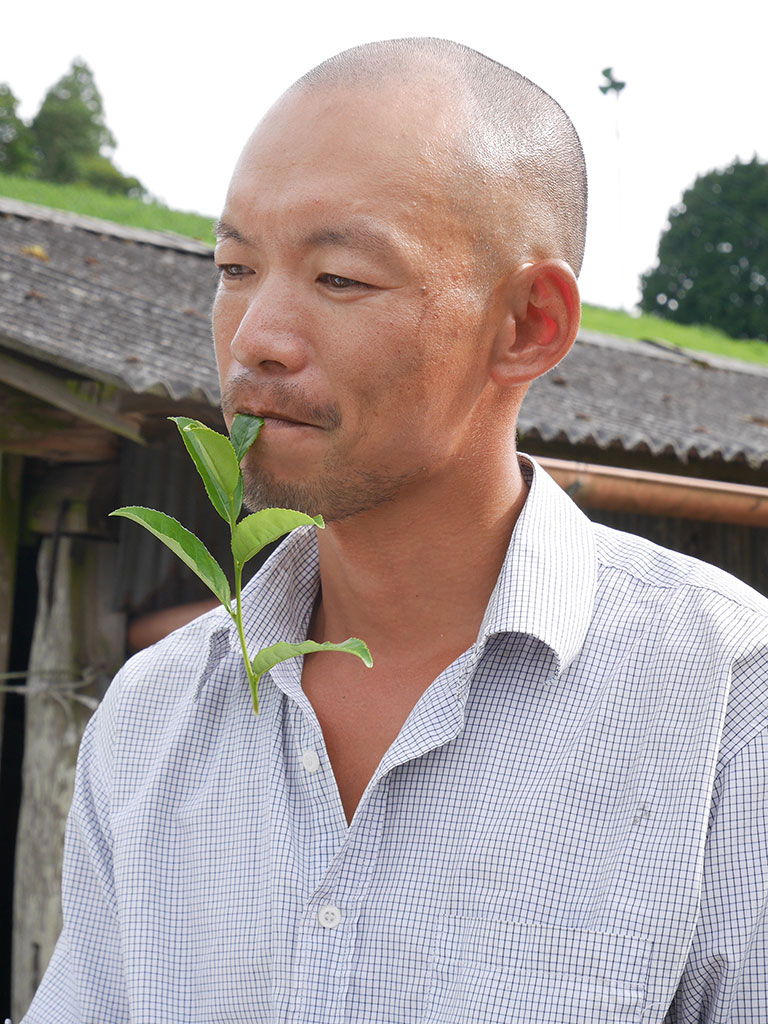
Akihiro “Akky” Kita is our president and lead farmer here at Obubu. His desire to make this tea available to the general public is the foundation of Kyoto Obubu Tea Farms. While at university, Akky took up a part-time job as a farmhand in Wazuka, and fell in love with the tea of this region. He made the decision then to leave college and devote his time to mastering the art of tea farming. Recognizing the need for independent farmers like himself to spread the joy of drinking Japanese tea, he travels each year during the winter off-season to bring Japanese tea to people all over the world.


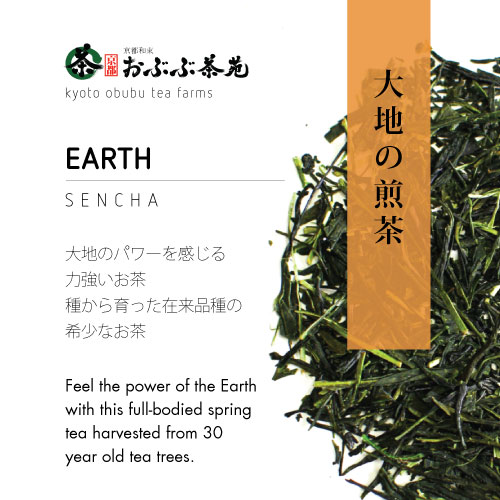
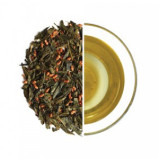
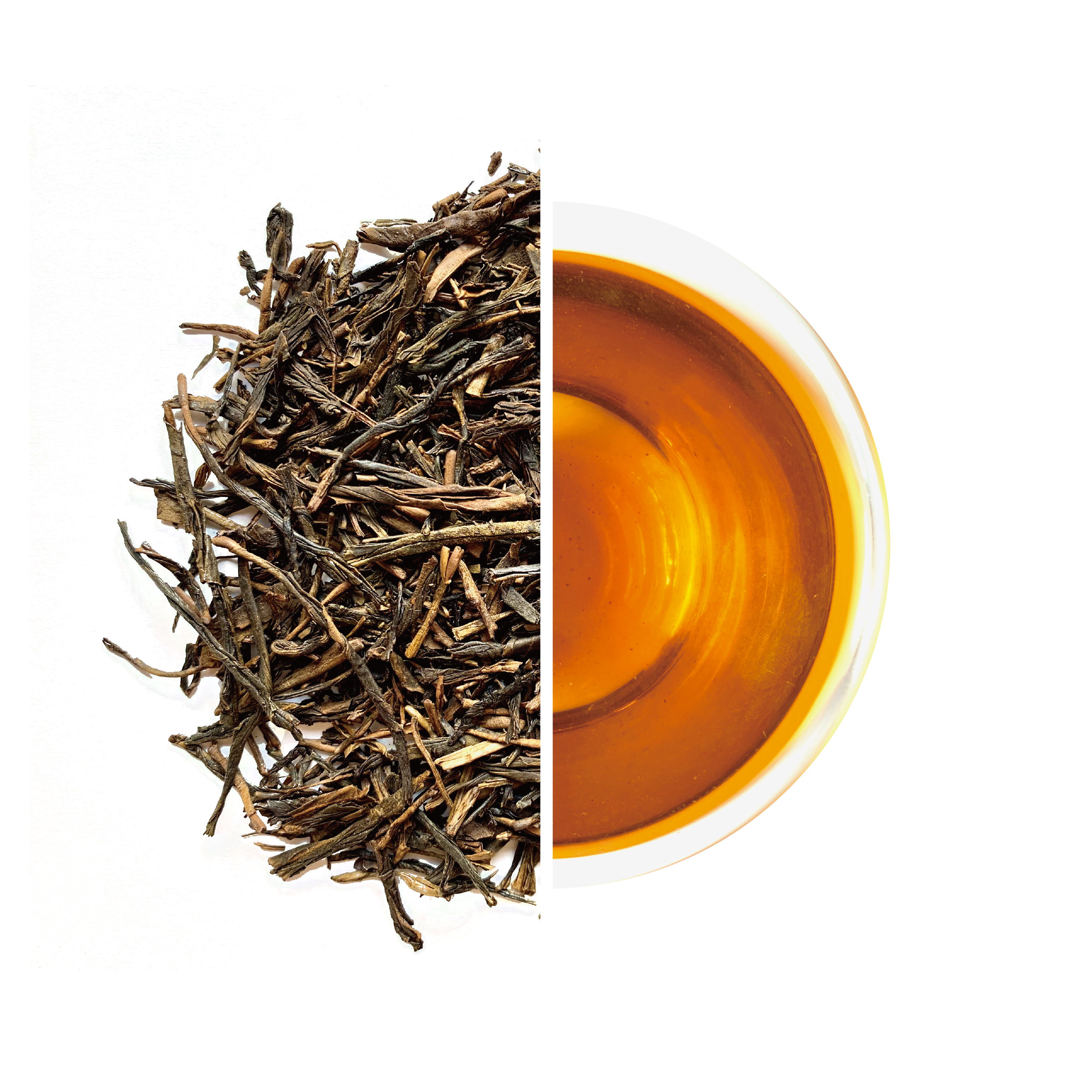
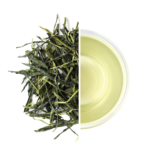
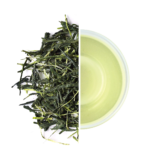
Obubu Tea –
Reviews by tea professionals and enthusiasts:
“The brewed leaves smelled like nice steamed vegetables, maybe asparagus as another reviewer noted. The first steep was a bit bitter with nutty and piney notes and a sweet grassy honey finish. Reaaaally good. This one was pretty powerful as well. I’m sure it wasn’t just this tea, as I had been drinking quite a bit before this one as well, but I noticed myself just trance out listening to whatever house-type beats my brother happened to be playing for a couple minutes at a time. Good times. Next steep was less bitter, but also not quite as sweet on the finish if that makes any sense” – Matu, 2016
” The aroma of the soggy leaves is so green! It smells like crisp bamboo leaves, clover leaves and flowers, edamame, and sea air, it smells to me like summer. The liquid is light and sweet, like clovers and honey with distant cut grass and broken vegetation, it smells refreshing” – Amanda Freeman, 2016
” The golden infusion has a buttery, peppery, nutty aroma with notes of cooked edamame. The taste is moderately astringent, green, savory, and nutty.
While it was enjoyable after being steeped for 2 minutes, a shorter steeping time did bring out more savory qualities” – Heather Porter, 2016
“This one tastes and smells strongly of honey. In addition to the honey, this also has some strong umami and grass notes, with a noticeable but pleasant bit of bitterness” _ Anlina, 2014
“Flavour is sweet and grassy with light floral tones. Subtle strength overall with a minimal dry after taste. Slightly bitter and crisp” – Kayleigh, 2014
It was a fresh vegetal tone with a spice and mineral undertone. It gave me a powerful tingling mouthfeel with soft and warm umami. This reminds me of the smooth tones of the earth. It tastes of early buds, first leaves, young roots, small pebbles, and light ocean waves with a little sunshine. The next brew the flavors aged and became more prominent. The liquor also turned into a serpentine jade” –haveteawilltravel, 2014
“Very different from any other sencha I have tried. Complex, rich, and interesting. I would especially recommend this for people who don’t like the fresh grassy and seaweedy tones of sencha, because it had the least of these characteristics of among any sencha I’ve tried. It was ever-so-slightly more oolong-like.”- by Alex Zorach, 2013
“This is a fantastic Sencha. Each time I try a tea from Obubu I am impressed by the flavor. No exception with this tea. There is an earthiness to this Sencha that I don’t think I’ve experienced in another Sencha. It also has a charming spice note to it that is quite good. Certainly one of the most interesting and unusual Sencha teas I’ve tasted recently, and I am really liking it.” – by LiberTEAS, 2011
“This tea is appropriately named, because there is also an earthy quality to the flavor of this tea that I don’t think I’ve ever experienced before with another Sencha tea. With this earthy note and grassy tones, this tea truly is a Sencha of the Earth!” – by Sorori Tea Sisters, 2011
“I was pleasantly surprised with the earthy taste that this tea has, it really is worth trying.” – by 365 Days of Tea, 2011
Michelle (verified owner) –
This is a pleasant tea with grassy and light umami flavors and a nice lingering finish. Light to medium body. No bitterness, astringency, or off flavors.
adamvanscooter (verified owner) –
A rich and earthy sencha, with a little sweetness as well; a great choice if you are looking to try something new!